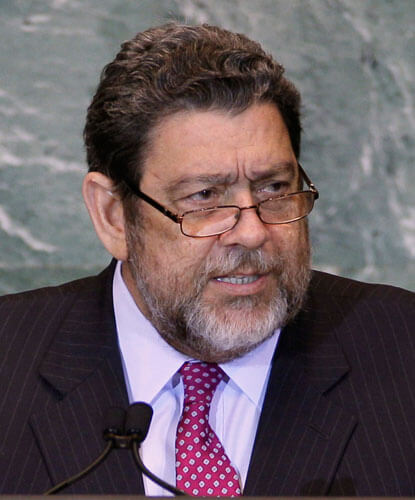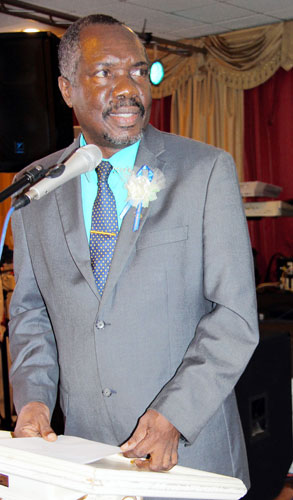The government of Prime Minister Dr. Ralph Gonsalves in St. Vincent and the Grenadines says while the 2013 United States Trafficking in Persons Report gives a more accurate reflection of the situation in the country, some aspects are “of concern to government officials as being inaccurate or unfounded.”
In a statement issued in Washington on June 26, St. Vincent and the Grenadines’ Ambassador to the United States, La Celia Prince, criticized the report as “prescribing solutions for problems that do not exist.”
“While recognizing the commendable progress made by the government, the report asserts that St. Vincent and the Grenadines is a source, transit and destination country for trafficking victims,” Prince noted.
“While the report praises the country for investigating potential trafficking cases, it laments the fact that no prosecutions were made,” she added.
Prince noted that, in previous meetings with the U.S. Department of State’s Trafficking Unit, she “made it clear that the government of St. Vincent and the Grenadines has confidence in the legal process, so that if an investigation is conducted, which concludes that elements of trafficking are not substantiated in the case, then there can be no prosecution.”
“In my view, the report practically begs the trumping up of charges,” she said. “It notes that there were no reports of public officials complicit in human trafficking offenses, as though this was an expected outcome of the investigations.
“This is one of the things that the United States looks for when writing their reports, and we have registered our alarm to the Department of State that their reports are predicated on the assumption that trafficking takes place in all countries and that there are always high-level officials involved,” she added.
“That is quite simply not the case,” the envoy stressed.
Even as Caribbean Community (CARICOM) governments, during the past year, have seemingly made efforts in addressing human trafficking, the United States says many of them have still not done enough in tackling the issue.
In the report, the U.S. Department of State listed six CARICOM member-states on its Tier 2 Watch List: Barbados, Guyana, Haiti, St. Lucia, Suriname, and Trinidad and Tobago.
Antigua and Barbuda, the Bahamas, Belize, Jamaica, and St. Vincent and the Grenadines are listed on the Tier 2 List.
In distinguishing Tier 2 Watch List from Tier 2 list, the Department of State defines countries on the Tier 2 Watch List as those whose governments “do not fully comply” with the minimum standards in its Trafficking Victims Protection Act (TVPA) but are making significant efforts to bring themselves into compliance with those standards, and the absolute number of victims of severe forms of trafficking is, among other things, “very significant or is significantly increasing.”
Countries on the Tier 2 List, on the other hand, are those whose governments do not fully comply with the TVPA’s minimum standards but are simply making significant efforts to bring themselves into compliance with those standards.
The State Department claims that St. Vincent and the Grenadines is a “source, transit and destination country for some men, women, and children subjected to forced labor and sex trafficking.
“Officials have expressed concern about the possible existence of adults pressuring children under the age of 18 to provide sex acts to men in exchange for money or gifts, a form of sex trafficking,” it says.
“Officials have also raised concerns regarding foreign women engaged in prostitution in or transiting through the country,” it adds.
The report says that other vulnerable groups include foreign workers and children under the age of 16 working in shops.
“The government of St. Vincent and the Grenadines does not fully comply with the minimum standards for the elimination of trafficking; however, it is making significant efforts to do so,” it says.
During the reporting period, the report says the Ralph Gonsalves administration “initiated both sex and labor trafficking investigations, raised awareness about human trafficking, developed screening forms to help officials proactively identify trafficking victims among vulnerable groups, and funded the establishment of a crisis center that could assist trafficking victims.”
But the State Department says the government “did not refer any potential victims to the center or launch any prosecutions against trafficking offenders.”























